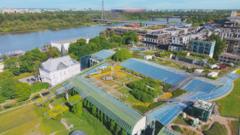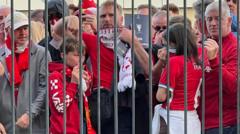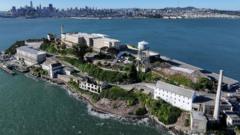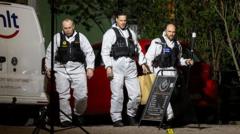The debate continues over whether increased military spending will effectively revitalize Europe’s struggling industrial sector.
Europe's Military Spending: A Boost or Burden for Economic Growth?

Europe's Military Spending: A Boost or Burden for Economic Growth?
Leaders seek to rearm European forces amidst economic challenges as U.S. security guarantees diminish.
In a decisive move, European leaders are preparing to invest hundreds of billions of euros to reinforce their military capabilities, as the current geopolitical climate raises concerns over security in a post-U.S. guarantee landscape. The Russian invasion of Ukraine has underscored the urgency for many countries in Europe to rearm and strengthen defense systems.
However, this renewed focus on military expenditures is being viewed through another lens as well: the potential for stimulating economic growth in a stagnating industrial sector. Ursula von der Leyen, President of the European Commission, recently highlighted the intertwined nature of defense investments and economic vigor, describing these expenditures as a “powerful tailwind for important industries” during her addresses.
Leaders are now set to meet in Brussels to discuss a comprehensive future strategy for European defense, as the European Commission prepares to release pivotal recommendations on military spending. While there seems to be a consensus among politicians that this burst of investment could provide a short-term boost to economies, the actual outcomes depend heavily on the efficiency and areas of spending. Key questions arise: Will the funds be effectively allocated? Will they indeed lead to sustainable economic rejuvenation?
However, experts warn that the challenges surrounding such investments are complex, and skepticism remains about whether the hoped-for economic revival will materialize. The timeline for realizing tangible benefits from military spending remains uncertain, as Europe faces hurdles in implementing these ambitious financial plans while also ensuring security.
As the continent grapples with its future defense posture, leaders must balance their military aspirations with the pressing need for economic revitalization, making the stakes of the upcoming discussions in Brussels all the more significant.
However, this renewed focus on military expenditures is being viewed through another lens as well: the potential for stimulating economic growth in a stagnating industrial sector. Ursula von der Leyen, President of the European Commission, recently highlighted the intertwined nature of defense investments and economic vigor, describing these expenditures as a “powerful tailwind for important industries” during her addresses.
Leaders are now set to meet in Brussels to discuss a comprehensive future strategy for European defense, as the European Commission prepares to release pivotal recommendations on military spending. While there seems to be a consensus among politicians that this burst of investment could provide a short-term boost to economies, the actual outcomes depend heavily on the efficiency and areas of spending. Key questions arise: Will the funds be effectively allocated? Will they indeed lead to sustainable economic rejuvenation?
However, experts warn that the challenges surrounding such investments are complex, and skepticism remains about whether the hoped-for economic revival will materialize. The timeline for realizing tangible benefits from military spending remains uncertain, as Europe faces hurdles in implementing these ambitious financial plans while also ensuring security.
As the continent grapples with its future defense posture, leaders must balance their military aspirations with the pressing need for economic revitalization, making the stakes of the upcoming discussions in Brussels all the more significant.




















